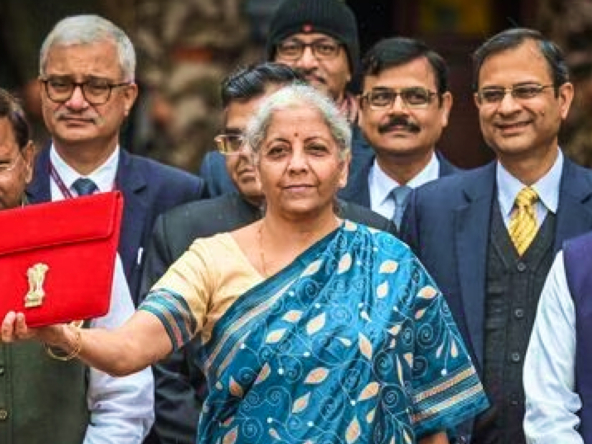Real Estate Myths Exposed: Uncovering the Truth About real estate market in India:
In India, the real estate industry is booming, and various cities have seen consistent expansion and development. But even during this boom, there are still a lot of myths and misconceptions that frequently obscure the reality of the real estate market in India. Through the presentation of information and highlighting the realities of the real estate market in India, we hope to dispel some widespread misconceptions in this blog.
Myth 1: A secure investment is always real estate:
Fact:
Although it’s a frequent misconception, investing in real estate isn’t always free from risk. The real estate market in India is susceptible to changes in demand and supply, government policy shifts, and economic ups and downs. The security of real estate investments may also be impacted by issues like property title issues, building flaws, or legal battles over land. Therefore, before making real estate investment selections, it is crucial to undertake exhaustive due research, comprehend market trends, diversify investments, and consult reliable consultants. To reduce risks and make a safer real estate investment, caution and market understanding are crucial.
Myth 2: House prices are always rising.
Fact:
It is common to mistakenly believe that real estate prices are only going up. While some places and properties may experience constant appreciation, it is not a universal truth. The real estate market in India is cyclical, and price fluctuations are a response to market conditions. Factors such as location attractiveness, infrastructure development, and market demand play a crucial role in determining price developments. Investors need to consider long-term trends, market indicators, and local factors to make informed decisions.
Myth 3: Real estate is reserved for the rich.
Fact:
Real estate investment is not reserved exclusively for the rich. In recent years, various financial institutions have introduced flexible lending options, making it easier for people with diversified incomes to invest in the real estate market in India. In addition, the emergence of affordable real estate projects and government initiatives such as the Pradhan Mantri Awas Yojana has further expanded opportunities for middle-income groups to own real estate. Through careful financial planning and in-depth research, individuals can explore investment opportunities tailored to their budgets and financial goals.
Myth 4: Rental income guarantees substantial profits.
Fact:
Although rental income can be an important source of income, it does not always translate into substantial profits. Rental returns depend on factors such as location, type of asset, prevailing rental rates, and tenant demand. High vacancy rates or excessive supply of rental properties can affect rental returns. Investors need to assess rental market conditions and take into account factors such as maintenance costs, taxes, and potential rent fluctuations before expecting significant profits from rental income.
Myth 5: Real estate transactions are always transparent.
Fact:
Transparency in real estate transactions is a crucial aspect, but it is not always a guarantee. The real estate market in India has experienced instances of fraudulent practices, unauthorized construction and misleading advertising. To ensure transparency, buyers and investors must engage reputable real estate agents, conduct thorough legal due diligence, review all necessary documentation and verify the authenticity of the property and the developer. Prudence and vigilance are essential to protect against potential fraud and ensure a transparent and legal transaction.
Myth 6: Only in major cities is real estate investing viable.
Fact:
It is common to think wrongly that real estate investment is only profitable in large metropolitan cities. While these cities can offer attractive investment opportunities, there are also lucrative opportunities in other regions. Rapid infrastructure development, supportive government policies, and economic expansion in smaller cities and outlying regions have created significant potential for real estate investment. Furthermore, these regions frequently have more cheap buying costs, enabling investors to get competitive long-term returns. Therefore, in order to maximize the potential for profit, it is essential to consider investment prospects across a variety of geographies, taking into account elements like societal development, infrastructure improvements, and the real estate market in India.
Myth 7: Real estate investing necessitates a sizable initial financial investment.
Fact:
It is a common misconception that real estate investment requires a considerable amount of capital, to begin with. However, there are various real estate investment options that allow investors to start with smaller amounts. For example, condominium buying, real estate funds, or mortgage financing offer investment opportunities accessible to different budgets. In addition, real estate crowdfunding platforms allow investors to participate in real estate projects with smaller amounts. To maximize return potential, careful financial planning, resource-specific opportunities, and investment diversification are crucial. Real estate investing can be accessible to a broad spectrum of investors without requiring significant upfront capital with prudence and careful money management.
Conclusion:
Making wise investment choices requires an understanding of the Indian real estate market’s realities. By dispelling myths, we highlighted the sector’s dynamic character and the necessity for careful analysis, research, and due diligence. Real estate investments can generate significant returns, but they also carry risks. Investors and buyers need to stay informed about market trends, seek professional advice when needed, and approach the real estate market in India with a realistic perspective to successfully navigate the Indian real estate landscape.
FAQs,
1. Is real estate investment only for the wealthy?
Ans: Investment in real estate is not just for the wealthy. Government programs, flexible financing programs, and cheap housing options all help people from different socioeconomic backgrounds buy real estate.
2. Are all real estate transactions transparent?
Ans: No, not all real estate deals are open and honest. It’s crucial to do your research and get expert guidance.




